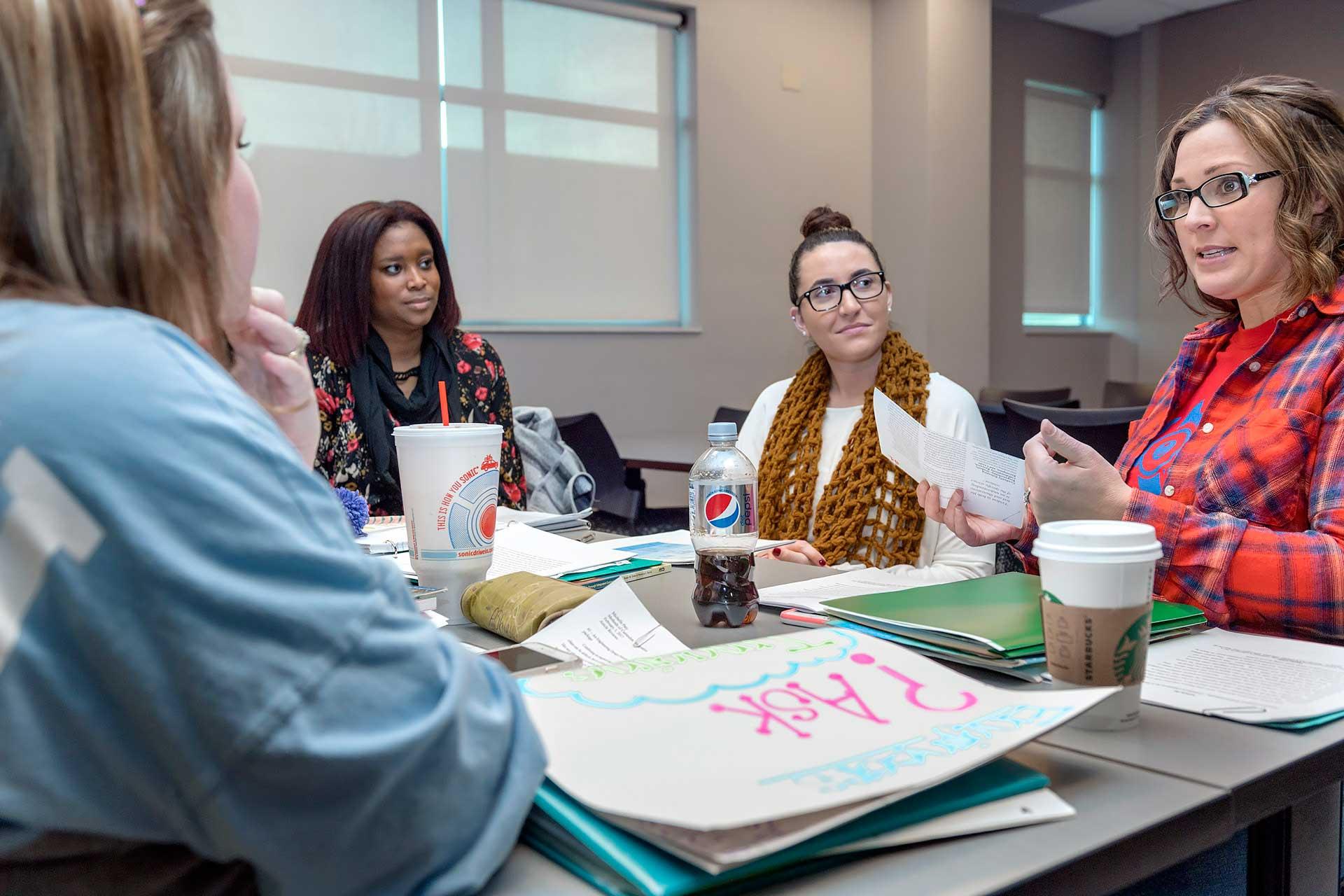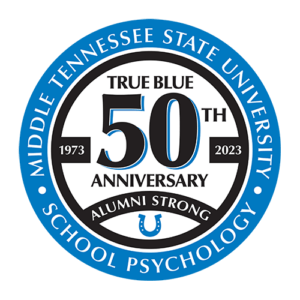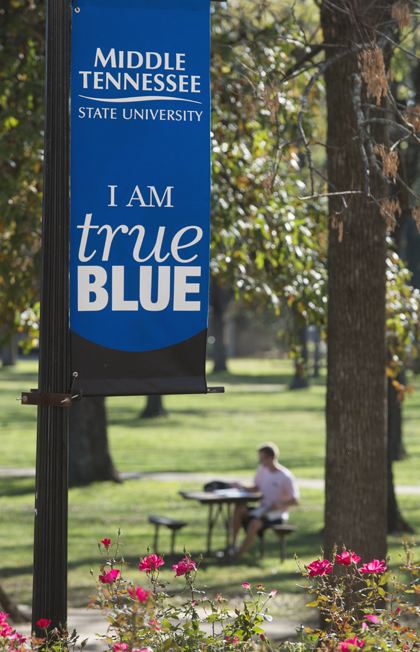
Curriculum and Instruction
Become a licensed School Psychologist and prepare for a rewarding career supporting students' academic and emotional needs.
Curriculum and Instruction, School Psychology Concentration, Ed.S.
School Psychologists work in collaboration with teachers, parents, and other school personnel to meet the academic, social, behavioral, and emotional needs of students in grades pre-school-high school. The School Psychology program at Middle Tennessee State University offers an M.A. that couples with an Ed.S. program and leads to licensure as a School Psychologist through the Tennessee Department of Education. The curriculum entails 65 credit hours of on-campus courses, school-based practica, and a year-long capstone internship in the schools. Courses and field-work components prepare graduates of the program to provide evidence-based assessment, consultation, and intervention services in a school setting. The National Association of School Psychologists (NASP) first approved the program in 1991 and 2023 marked the program's 50th anniversary.
Watch our 50th anniversary video here.

News Briefs

We’ve Been Celebrating!
Over 150 alumni, family members, and MTSU faculty and staff filled the atrium of ACB on September 9 to celebrate our 50th anniversary and honor the 48- year career of program founder, Dr. James O. Rust. Photo to the left shows current and past program faculty and alumni that graduated between 1978 and 2023 who were on hand for the photo shoot.

Collecting Data!
Yep, it’s that time again. It rolls around every five to seven years. This fall, we started the 2-year data collection cycle that is part of the NASP (National Association of School Psychologists) approval process. Self-study materials are due September 2025 and NASP reviewers will conduct a site visit in 2026. We have been recognized as a fully approved program since 1991 and maintaining this status is core to our identity as a program and the training we provide. Graduates of NASP approved programs are eligible for the NCSP (National Certification as a School Psychologist).ide of Tennessee. One hundred percent of our students during the 2021-2022 school year passed the PRAXIS exam at the national level, secured a paid internship, and obtained licensure and a job working as a School Psychologist.
News Briefs
We’ve Been Celebrating!

Over 150 alumni, family members, and MTSU faculty and staff filled the atrium of ACB on September 9 to celebrate our 50th anniversary and honor the 48- year career of program founder, Dr. James O. Rust. Photo to the left shows current and past program faculty and alumni that graduated between 1978 and 2023 who were on hand for the photo shoot.
Collecting Data!

Yep, it’s that time again. It rolls around every five to seven years. This fall, we started the 2-year data collection cycle that is part of the NASP (National Association of School Psychologists) approval process. Self-study materials are due September 2025 and NASP reviewers will conduct a site visit in 2026. We have been recognized as a fully approved program since 1991 and maintaining this status is core to our identity as a program and the training we provide. Graduates of NASP approved programs are eligible for the NCSP (National Certification as a School Psychologist).ide of Tennessee. One hundred percent of our students during the 2021-2022 school year passed the PRAXIS exam at the national level, secured a paid internship, and obtained licensure and a job working as a School Psychologist.
Related Media

MTSU graduates are employed in education as either school psychologists or behavioral analysts. A school psychologist may work in a variety of different environments including public schools, clinics and hospitals, private schools, school health clinics, universities, community agencies, and in private practice.
Employers of MTSU alumni include
- Bedford County Schools
- Cartersville (Ga.) Schools
- Cave City (Ark.) School District
- Coffee County Schools
- Dickson County Schools
- Knoxville City Schools
- Lewis County Schools
- McMinn County Schools
- Metro-Nashville Public Schools
- Murfreesboro City Schools
- Rutherford County School
- Sumner County Schools
- Tennessee Department of Education
- Vancouver (Wash.) Public Schools
- Warren County Schools
- Williamson County Schools
- Wilson County Schools



Resources
FAQ
MTSU offers two related graduate programs in school psychology: a Master of Arts (M.A.) in Psychology with a Pre-Specialist in Education: School Psychology concentration, and a Specialist in Education (Ed.S.) in Curriculum and Instruction with a School Psychology concentration.
Students typically earn the M.A. degree at the end of their second year of study and the Ed.S. at the end of their third year.
Applicants for unconditional admission must have a bachelor's degree; undergraduate GPA of 3.00; and a GRE score of 291 (current scale) or 900 (former scale) on Verbal and Quantitative combined. Students are selected from a pool of qualified applicants, with the number of students admitted based on the availability of adequate faculty supervision.
Acceptance admits students into the M.A. portion of the school psychology program, and paperwork is required later in the program for admission into the Ed.S. program.
School psychology students may add an Applied Behavior Analysis (ABA) specialization.
An Ed.S. is required to be eligible for state licensure or National Certification as a School Psychologist (NCSP).
Students with a master's degree already in psychology or counseling may apply for the Ed.S. in order to re-specialize but will be required to complete deficiencies.
The M.A. in Psychology is also available with concentrations in Clinical, Experimental, Industrial-Organizational, and Quantitative Psychology. The department also offers a minor at the graduate level.
For complete curriculum details, click on the REQUIREMENTS tab above.

CONTACT US

Please fill in the form below and we will contact you very soon










